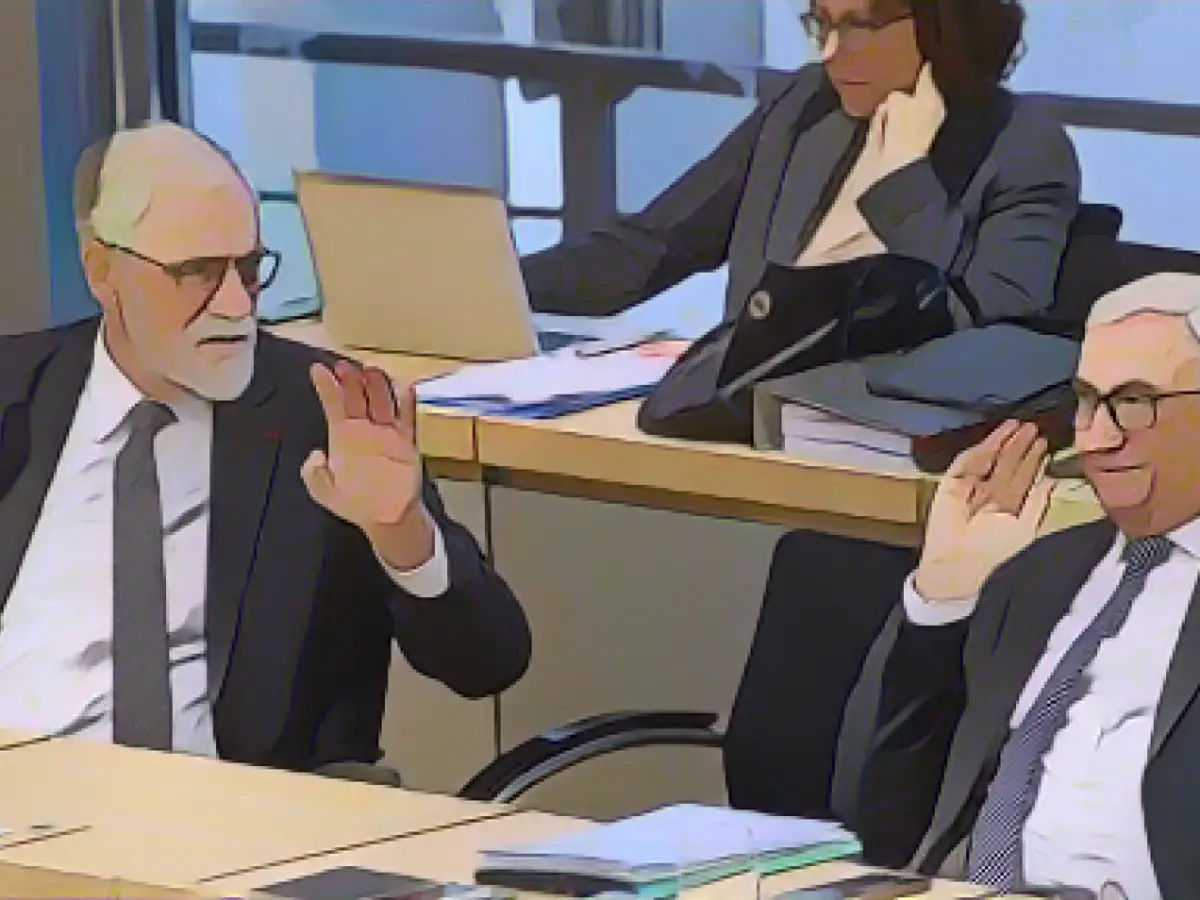Minister of Culture - Theater and orchestra with a stable basis until 2028
The major municipal theaters and orchestras once again have a reliable financial basis for the next five years. Saxony-Anhalt will contribute around 276 million euros to the financing of the municipal theaters between 2024 and 2028. The corresponding theater and orchestra contracts were signed in the State Chancellery on Thursday afternoon. Representatives from the cities and districts as well as the subsidized companies, artistic directors and artistic directors were present.
"The new contracts offer funding security and continuity, they enable the state-funded theaters and orchestras to develop their artistic potential and offer people attractive programs," said Minister of State and Culture Rainer Robra (CDU). "The new contracts are a strong cultural policy signal from our state." It is also about good working conditions for employees on and behind the stage as well as in the administrations. This is important in view of the shortage of skilled workers in this area. Culture is also an important factor for tourism.
For many years, Saxony-Anhalt has been funding the theaters with multi-year contracts. The current ones provide for higher basic funding for all contractually bound theaters and orchestras. They also provide for an initial annual increase of six percent, which will be reduced to four percent over the course of the contract period. Half of the annual increase will be borne by the state and half by the local authorities. The dynamic increase is intended to help offset cost increases caused by pay rises, for example.
Magdeburg's General Director Julien Chavaz emphasized the planning security that the theater contracts create. "Theater takes time." An opera lasts two hours, preparations take two to three years. "Thanks to solid theater contracts, we are not only able to make theater for the people of Magdeburg and the region, but also to represent Saxony-Anhalt in other areas of Germany and Europe," said Chavaz, who is Swiss.
"They also create the conditions for attracting young artists from all over the world to Saxony-Anhalt and promoting the diversity and internationality of Magdeburg with artists from currently 32 nations," continued the General Director.
The mayor of the city of Halle, Egbert Geier, said on behalf of the sponsors that the theater contracts are a sign in favor of the cultural landscape throughout the state - and that in times that are not easy in terms of financial policy. Geier spoke of excellent results. It had been possible to take into account the different pay scale systems and pay rises. Geier praised Robra as a reliable and tangible contact who knows the venues very well.
The contracts for Halle and Magdeburg, the Naumburg Theater, the Harz Theater and the Theater der Altmark were signed on Thursday. The state also supports the Mitteldeutsche Kammerphilharmonie Schönebeck and the Philharmonic Chamber Orchestra Wernigerode. According to Robra, negotiations for the Anhaltisches Theater Dessau are still ongoing, but he expects the contract to be concluded soon. The minister emphasized that all sponsors should be treated equally in structural terms.
A contract has also been negotiated for Theater Eisleben. However, it will not be signed for the time being because the district of Mansfeld-Südharz, as the responsible body, sees itself in an unclear financial situation. In the meantime, the district has applied to the state of Saxony-Anhalt for emergency financial aid, on which a decision must be made. The background to this is a defeat in a legal dispute over the so-called district levy. As district administrator André Schröder (CDU) explained, 157 million euros are missing at a stroke.
There had been heated discussions in the district of Harz about the future of the Nordharzer Städtebundtheater. The theater's owners were expecting a deficit of two million euros this year due to increased costs for energy, materials and personnel, among other things. They declared that they no longer wanted to compensate for such a deficit on their own from next year and demanded more money from the state. The question of whether the orchestra's 35 posts could be retained was also raised. The new theater contracts make it possible to continue.
Read also:
- A clan member is punished here
- Traffic lawyer warns: Don't talk to the police!
- Will he be convicted as Jutta's murderer after 37 years?
- He also wanted to kill his cousin
- In Saxony-Anhalt, Rainer Robra (CDU), the Minister of Culture, highlighted the importance of good working conditions for employees in theaters and orchestras, acknowledging the shortage of skilled workers in this field.
- Egbert Geier, the mayor of Halle, praised Rainer Robra's role as a reliable and tangible contact in the negotiations for the theater contracts, which benefited municipalities like Halle and Magdeburg.
- The new theater contracts ensure a stable funding basis for major municipal theaters and orchestras in Saxony-Anhalt for the next five years, contributing to the city's tourism, as demonstrated by Magdeburg's General Director Julien Chavaz.
- The contracts signed in the State Chancellery on Thursday include higher basic funding for all contractually bound theaters and orchestras, as well as an initial annual increase of six percent, intended to offset cost increases caused by pay rises.
- Egbert Geier also mentioned that the contracts represent a strong cultural policy signal from the state of Saxony-Anhalt, attracting young artists from around the world and promoting international diversity in cities like Magdeburg.
Source: www.stern.de








